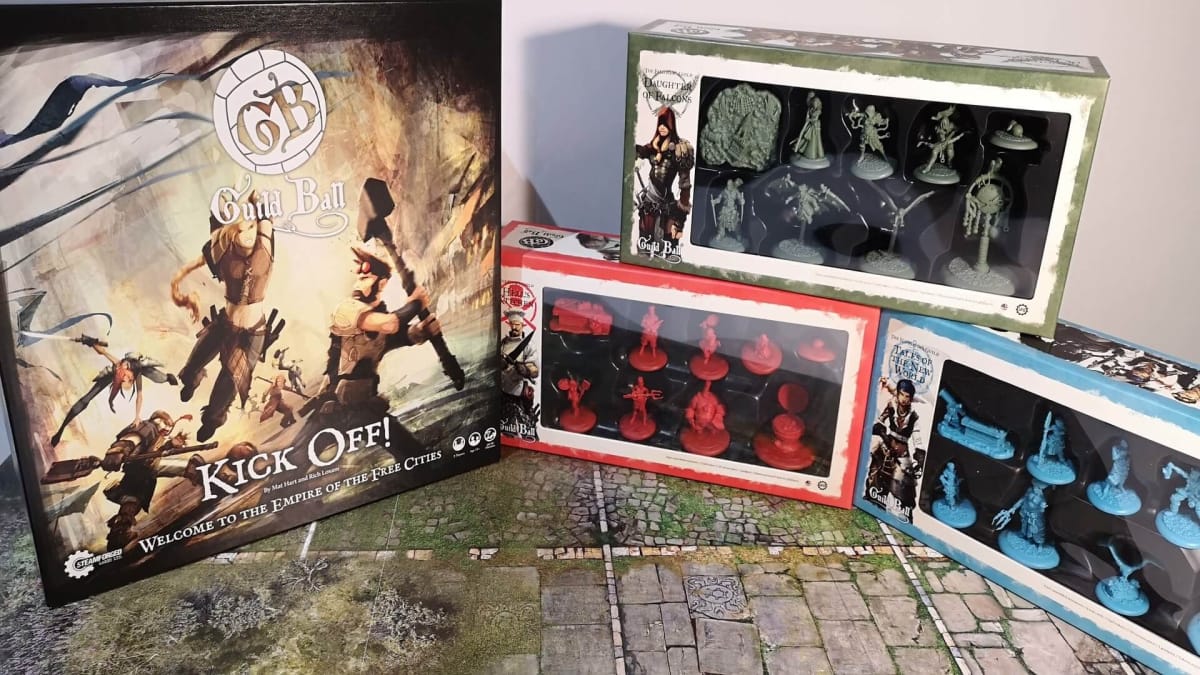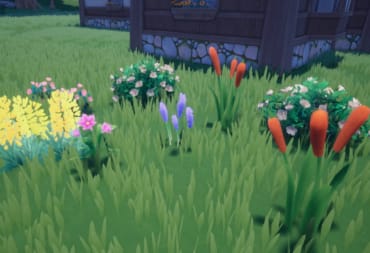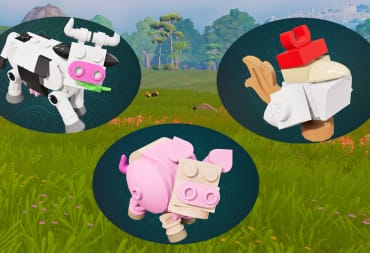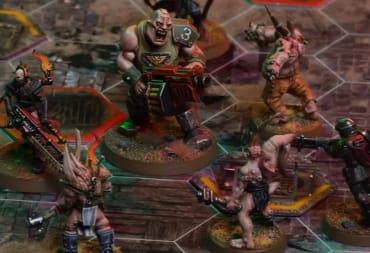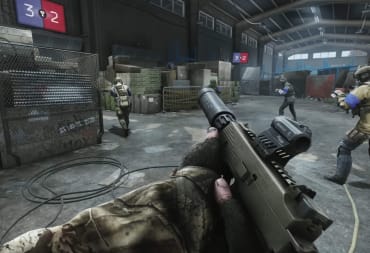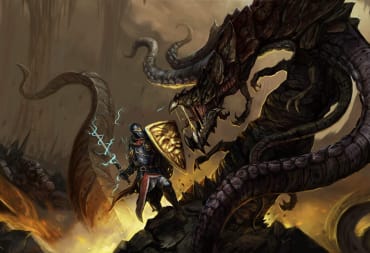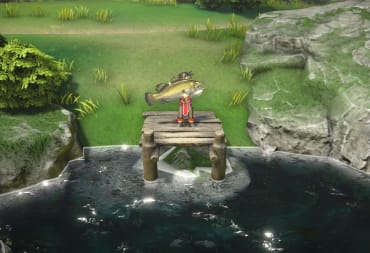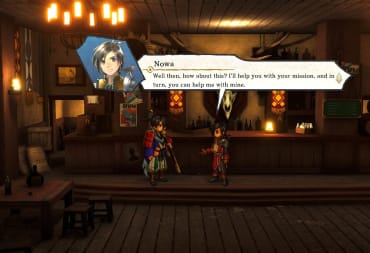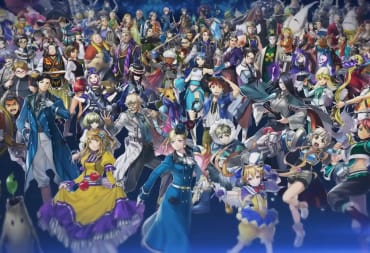Guild Ball is a tabletop skirmish wargame with a soccer twist by Steamforged Games. Players take on the role of a Guild Coach and take a team of 6 players onto the pitch. Players win by being the first to 12 points, which are scored with goals, and by taking opposing players out. This Guild Ball Guide will show you how to wrap your head around the game with ease.

You can buy Guild Ball products from our Tabletop Sponsor, Firestorm Games.
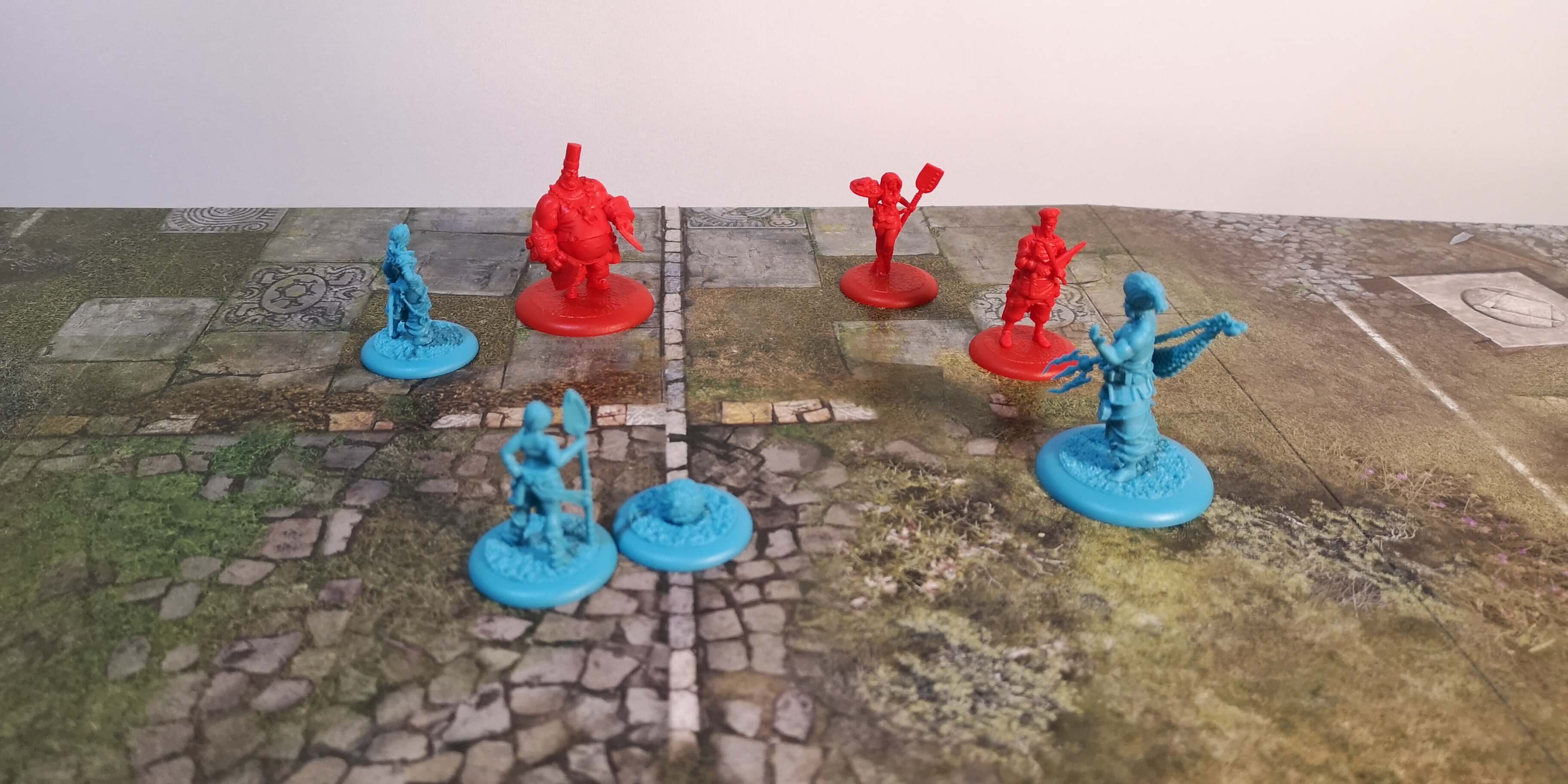
Guild Ball Guide - Mechanics
Guild Ball has some interesting mechanics that make it stand out as a sport based wargame. The first is the Influence and Momentum mechanics that define each turn.
Each player on the team generates an amount of influence. They also have a maximum influence value that’s higher than the amount they generate. Player generated influence goes into a pool and can be allocated to each player, up to their maximum influence value. Points are used for anything other than a basic move, so attacks, kicking the ball, and using special abilities all use influence points. This means that you need to plan the actions of your team at the start of each turn, making sure that each player has the influence they need to complete the actions that you need them to.
Momentum is generated by completing impressive actions, such as successfully passing the ball, scoring a goal and taking out opposing players. Momentum is then used to make shots on goal, recover player’s health, and give bonus dice to tests.
Momentum and Influence are lost each turn they aren’t used, so accurate planning and efficient management of them is as vital as player positioning and knowledge of yours and your opponent’s players.
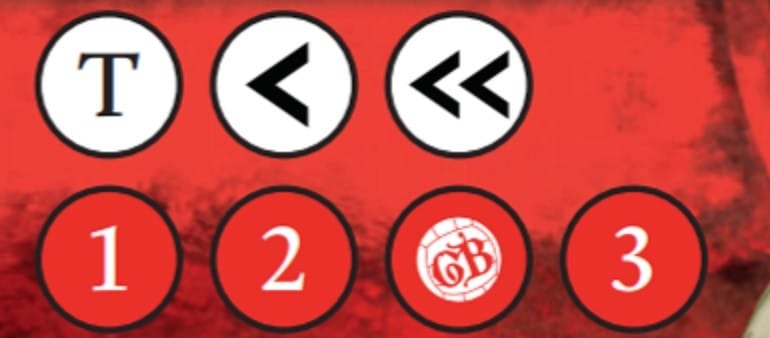
Another unique mechanic is the player’s playbooks. Each attack that hits generates an option on a damage chart known as the playbook. The more hits, the better the options that unlock, like increased damage, knocking a player over, or taking the ball from a carrying player.
Every character in Guild Ball has a unique playbook, stats, and set of skills. Some have synergies with other members of their team, such as a bonus to defense if their within a certain distance. When picking players for your team, the only restriction is the Guild you choose. There aren’t any points values for players, so once a team size has been decided between players, you are free to choose your team from the guild miniatures available. Teams can only have 1 captain and 1 mascot, but all other players can be chosen freely.
Guild Ball Guide - What do you need to play?
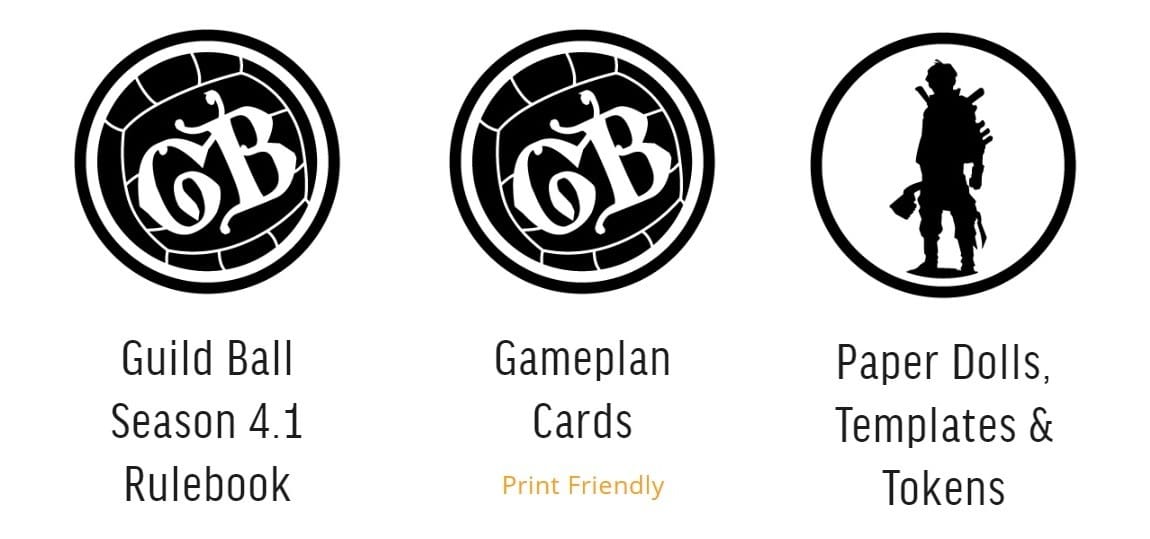
To play Guild Ball you need:
- The rules
- A guild (including Stat Cards)
- Tokens and Templates
- Gameplan Cards
- Dice (6-sided dice or D6)
All of these, including paper standups to represent your Guild, are available for free on the SFG website for you to print, so you only need to provide dice to try out a game of Guild Ball. You can use a tape measure for most of the template requirements, but having access to the official templates does make things easier. Tokens can also be represented by dice as well, or you could just note down scores and player influence on a piece of paper.
Guild Ball is currently in Season 4, so if you are going to play you will need the Season 4 rules and cards.
Next Steps
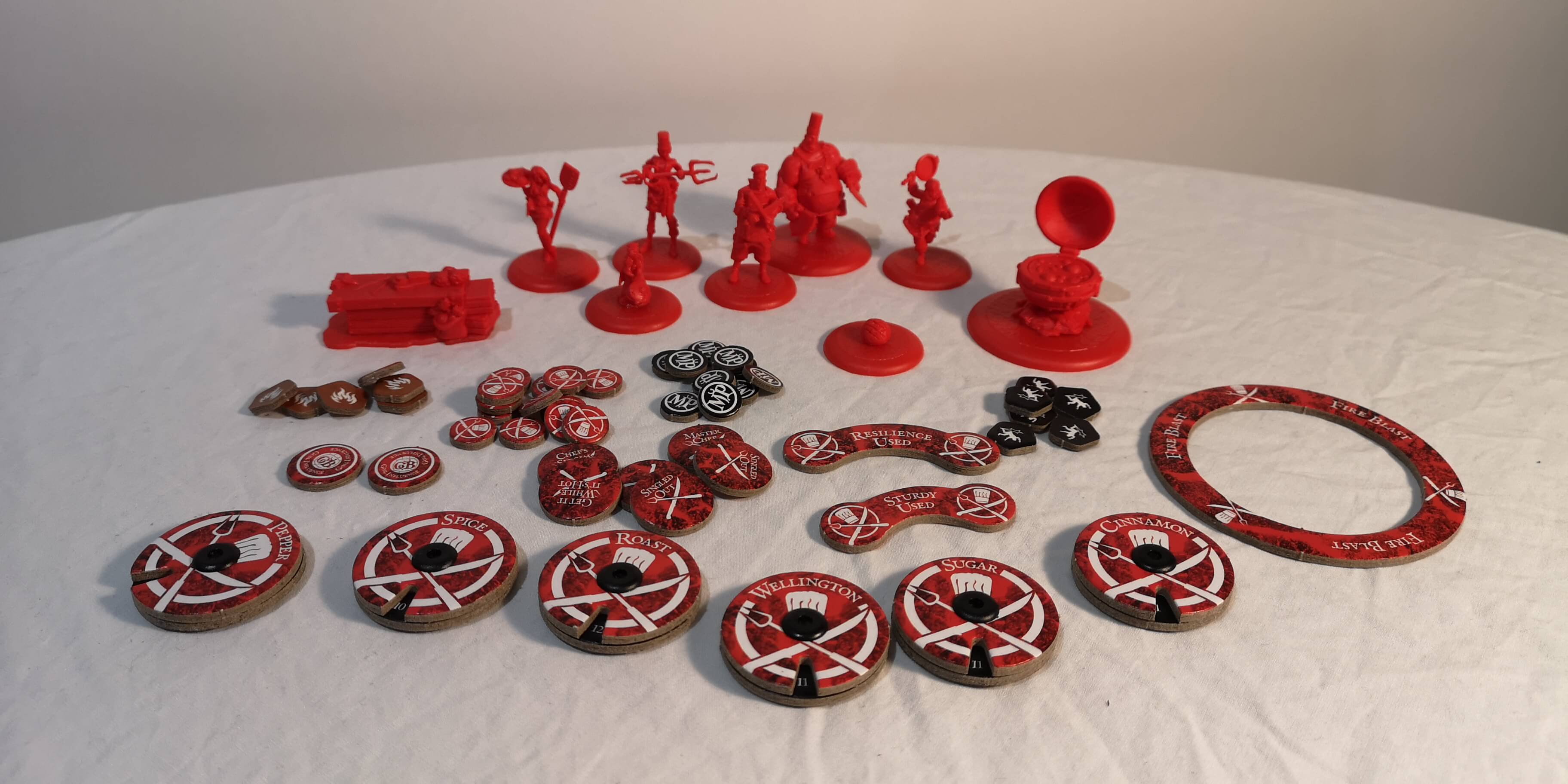
If you don’t want to play with paper cut-outs, or if you’ve played with them to test it and want to move to the next level, your next purchase should be a Guild miniatures boxed set, You can see a brief overview of all the Guilds below to see which style of play might suit you best.
Each of the new guild boxes contains 6 pre-assembled, colored miniatures, including 1 Captain, 1 Mascot, and 4 players. They also include a themed Guild ball and scenery piece, as well as health dials and tokens relevant to the special abilities of the players.
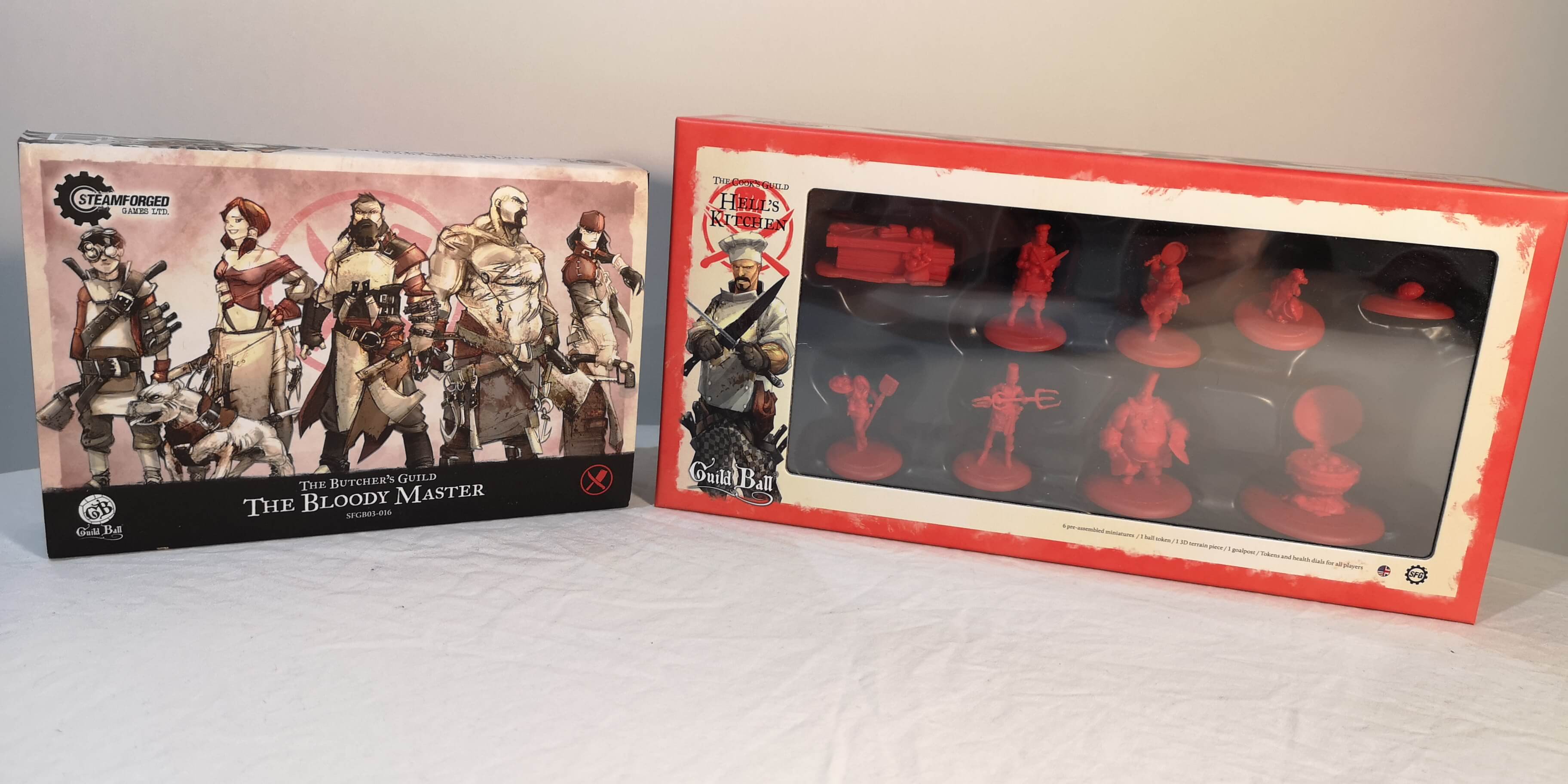
There are some older Guild Ball miniatures boxes still in circulation, and these contain metal miniatures that need assembly. These are still legal for use in Guild Ball and the player cards for them are the same as they are for all Guilds via the website.
There is also an extremely handy 2-player Starter-Set called Kick-Off, which was part of Season 3 and is now out of print, but it contains a card pitch, 2 teams, and all the tokens and templates you need for games of Guild Ball. If you managed to find a copy, you can print the updated rule and player card from the SFG site.
If you can’t get hold of Kick-Off, you can purchase third-party mats to represent the pitch, as well as acrylic tokens and templates. SFG has also produced themed dice for each Guild and an additional scenery set to vary your games of Guild Ball.
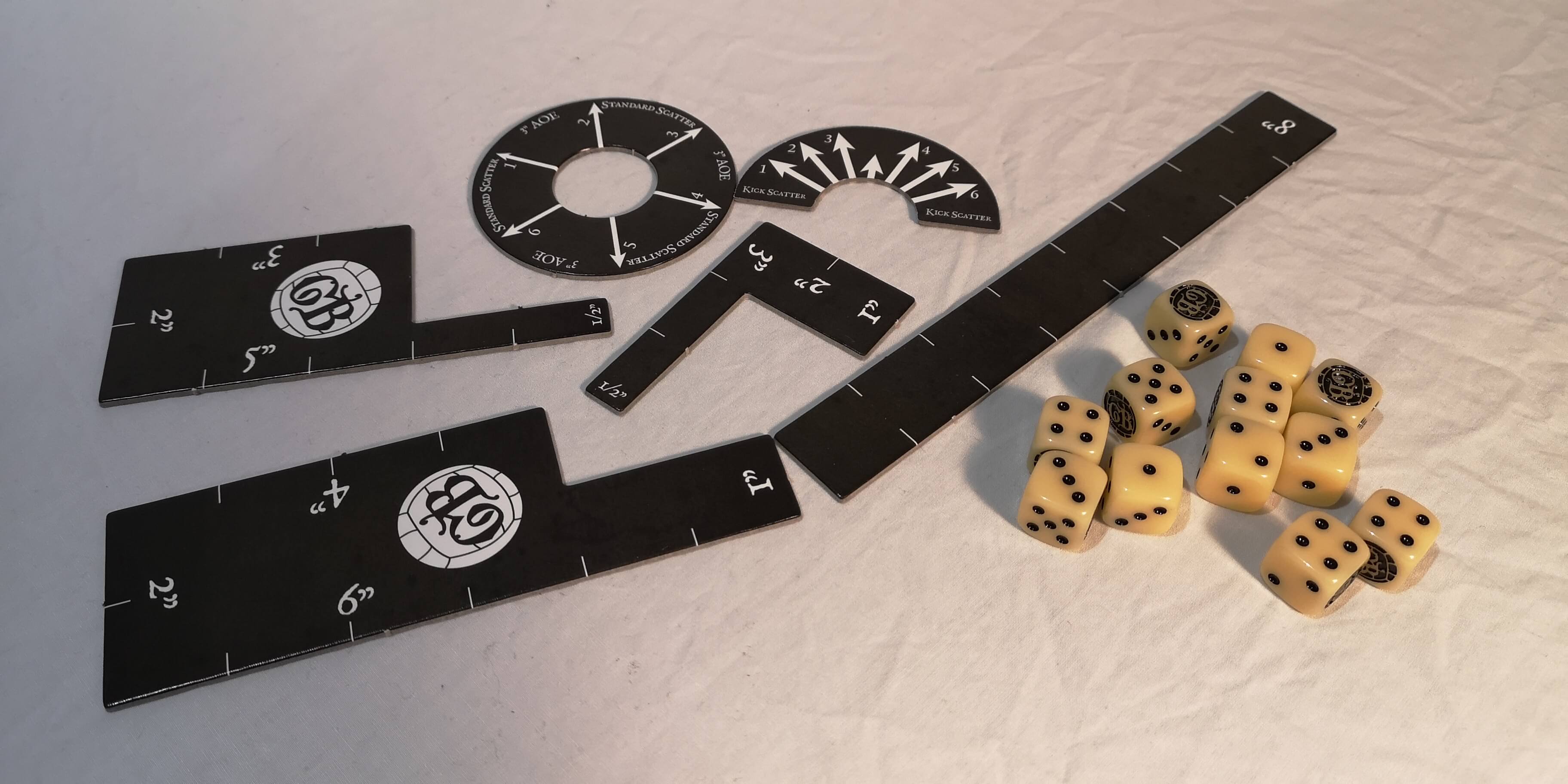
Guild Ball Guide - Guilds
Guilds are split into 2 types, Major and Minor. Major Guilds have access to 2 Captains and more players. Minor Guilds are more restrictive in their player choice. All Minor Guilds have an associated Major Guild, and they are able to use some players from that.

Major Guilds
- Alchemist - The Alchemists have lots of area of effect options, love to cause conditions on players by making them move through dangerous areas.
- Blacksmiths - The Blacksmiths utilize synergies between Masters and Apprentices. Have a unique team selection. Very reliant on activation sequencing. Have the capability to deal lots of damage.
- Brewers - The Brewers love to fight and can take a load of damage as a result. Excel at forcing through damage and beating teams with strength of numbers late game.
- Butchers - The Butchers deal damage and are almost entirely focused on this.
- Engineers - The Engineers are very accurate and have some interesting toys for use in-game.
- Farmers - The Farmers have a unique mechanic with some players placing harvest markers and other players picking them up to use them.
- Fishermen - The Fishermen are very fast and accurate, focused on scoring and vulnerable to beatings.
- Hunters - The Hunters are able to lay traps, so they can attack their target at range while keeping themselves out of danger.
- Masons - The Masons are a very balanced team, with equal offense and defense, access to some solid buffs, and debuffs.
- Morticians - The Morticians are all about control, messing with the opposition, physically and mentally.
- Union - The Union are made up of specialists, who excel at individual jobs. Balancing the players on the team is critical.

Minor Guilds
- Cooks (Butchers Minor Guild) - More focused on taking out enemies than the Butchers and more susceptible to return damage as a result.
- Falconers (Hunters Minor Guild) - Very good at building up and dealing damage from distance.
- Navigators (Fishermen Minor Guild) - Great at scoring, not very tough.
- Order (Union Minor Guild) - Very fast and aggressive goal scoring. Have options with an additional ball.
- Ratcatchers (Mortician minor Guild) - Like the Morticians, love to mess with their opponents and have access to the disease mechanic.
Have a tip, or want to point out something we missed? Leave a Comment or e-mail us at tips@techraptor.net
